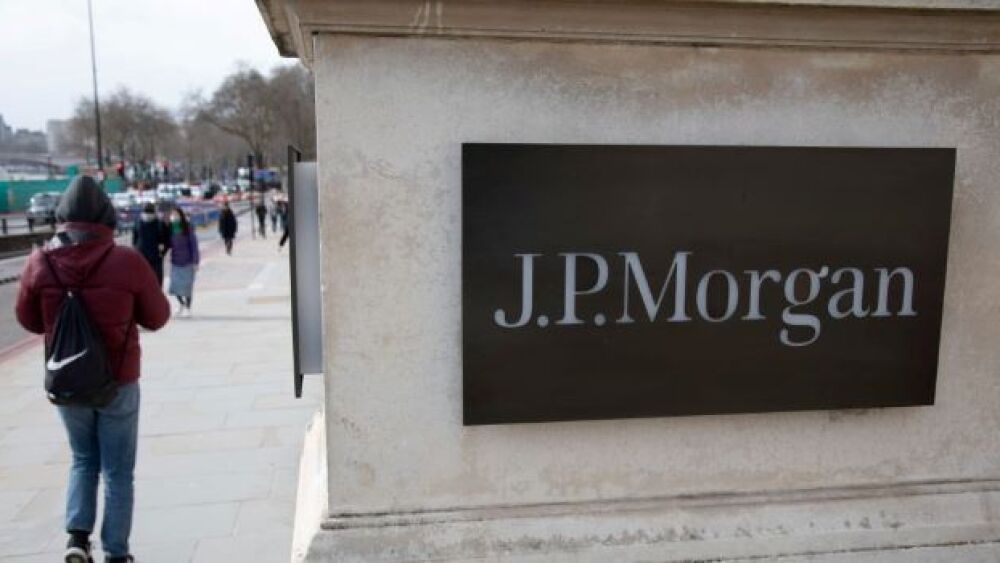BioSpace takes a look at the presentations made by Amgen, GSK and 2sevent bio at the all-virtual J.P. Morgan Conference.
Mike Kemp/In PIctures via Getty Images
Amgen Chief Executive Officer Robert Bradway is excited about the coming year. During his presentation at the J.P. Morgan Healthcare Conference, Bradway said things are lining up for long-term growth for the California-based company.
Part of that growth likely hinges on the deal with Arrakis Therapeutics the company struck this week to develop RNA degrader therapeutics for multiple therapeutic areas. As BioSpace reported Tuesday, the approach is expected to be able to “selectively destroy RNAs encoding disease-causing proteins by inducing their proximity to nucleases.”
“We made a few investments in our research capabilities, and we’re excited about how we’re deploying what we consider to be the next-generation research capabilities in our business, technologies that enable us to feel more confident that we can drug targets that were historically considered undruggable,” Bradway said.
While the Arrakis deal sets up some potential future earnings, the company is positioned to see positive returns on currently available therapies that are “already generating significant market shares and significant volume growth and have considerable potential still to grow.”
Some of those branded drugs that will drive revenue include Lumakras, a drug for non-small cell lung cancer, recently-approved asthma drug Tezspire, and an expanded approval for Otezla for psoriasis. These drugs will help set the course for 2022.
Biosimilar products are also expected to provide a source of growth for the company.
“We have a leading biosimilar business already today, and we anticipate a steady flow of launches that should enable us to grow that business as well through the end of the decade,” Bradway said.
Bradway noted that Amgen has an innovative pipeline being advanced across multiple indications, including oncology, immunology and cardiology.
Amgen wasn’t the only presentation. BioSpace takes a look at some of the other presentations made at the all-virtual J.P. Morgan Conference.
GSK Prepares for De-Merger of Pharma and Consumer Healthcare
The year 2022 is expected to be transformative for GlaxoSmithKline. CEO Emma Walmsley noted that the pharma business and the consumer healthcare business’s demerger is expected to “unlock tremendous value” for shareholders. Walmsley, who has been embattled by doubts of some shareholders over her ability to lead the pharmaceutical business, spent a significant portion of 2021 highlighting the planned demerger and preparing shareholders for the future of GSK.
Since taking over the helm of GSK in 2017, Walmsley has been positioning the company’s pharma platform for future growth. Over the past five years, the company has achieved 13 major regulatory approvals and has a pipeline of more than 60 different assets, including 23 potential vaccines for various viral threats.
“We are now ready to deliver the most significant corporate change for GSK seen in more than 20 years, to separate and create a new GSK and new consumer healthcare. Both of these businesses will have scale impacts on human health and the opportunity to deliver compelling performance attractive returns to shareholders,” Walmsley said in her presentation.
The de-merger is expected to take place in the middle months of 2022.
2seventy bio Eyes Big Future with Partnerships, Cell Therapies
2seventy bio, a spinout of bluebird bio, hit the ground running in 2021 with a first-in-class CAR T treatment for multiple myeloma that has blockbuster potential. That forward momentum continued into 2022 with a partnership with Novo Nordisk for the development of an in vivo gene editing treatment for hemophilia A. The licensing agreement with Novo Nordisk hinges on the power of 2seventy bio’s proprietary mRNA-based megaTAL technology. The companies intend to harness the megaTAL technology to develop a new approach for hemophilia A patients.
Nick Leschly, chief kairos officer at 2seventy, stated that the company has a simple vision – to “design, learn and iterate to build the most powerful T-cell based solutions for patients with cancer.”
In its arsenal, 2seventy has Abcema, approved last year by the U.S. Food and Drug Administration (FDA), has the potential to generate $250 to $300 million in revenue in the U.S. this year. That revenue is expected to increase significantly over the next few years, mainly due to continued clinical assessments that could expand its current approval.
The company’s pipeline is also growing. In December 2021, the FDA cleared the Investigational New Drug (IND) application for bbT369, an investigational dual-targeted CAR T cell therapy with a gene edit for patients with relapsed/refractory B cell non-Hodgkin lymphoma. Also, the company announced that as part of a strategic collaboration between Regeneron and 2seventy bio, the selection of the first CAR-based solid tumor program that harnesses bbT4015, an engineered CAR T cell therapy targeting MUC16, a large extracellular protein expressed on more than 80% of ovarian tumors.
Featured Jobs on BioSpace





